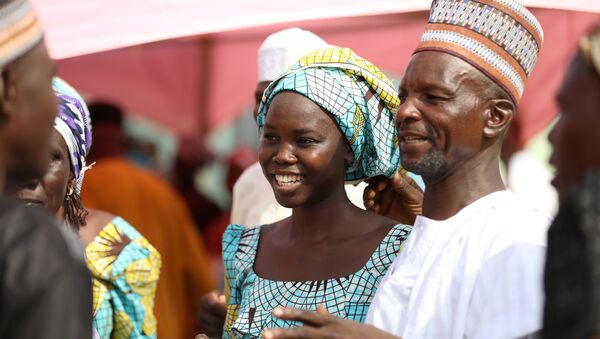The 82 young women, who were among the 276 kidnapped in 2014 from their school in the small town of Chibok in northeastern Nigeria, were picked up by Nigerian authorities after their release May 7 and taken quickly to the capital, Abuja, but have only now been reunited with their families there.
"I am really happy today, I am Christmas and New Year, I am very happy and I thank God," Godiya Joshua, whose daughter Esther was among those freed, said, AP reports.
The scene of the reunion was tearful and emotional; however, many of the families at the reunion event told German news outlet DW that the real celebration could only begin when all of the missing girls had come home.
— TheCable (@thecableng) May 20, 2017
The girls were returned after a deal was struck between the militants and the Nigerian government, and five commanders of the extremist group were released in the exchange. The government has promised to continue to work to bring the 113 young women who remain in captivity home. The recently released girls were also reunited with a group of 21 of their schoolmates who were freed in October.
— SagittarioCase (@SagittarioCase) May 20, 2017
The 82 girls released this month have been staying in facilities at the Department of State Services in the capital and were given medical and other checks in the weeks since their release. They are to take part in a nine-month reintegration program that is to be overseen by the highest levels of the Nigerian government. Before being able to see their families again, they met with several Nigerian politicians, the Telegraph reports.
Many of the kidnapped girls were forced to marry their captors and have borne them children. Some have become Boko Haram followers and have refused to return. According to the Nigerian government, there was supposed to be one more girl in this group, but she refused to part with her husband. It is feared that others have been used in suicide bomb attacks. Thousands have been kidnapped in northern Nigeria since the extremist group began its fight in 2009 to set up its own Islamic state, and more than 20,000 have been killed.
The kidnapping of the nearly 300 schoolgirls drew international attention to the issue and sparked the Bring Back Our Girls campaign to pressure the Nigerian government to rescue them.


